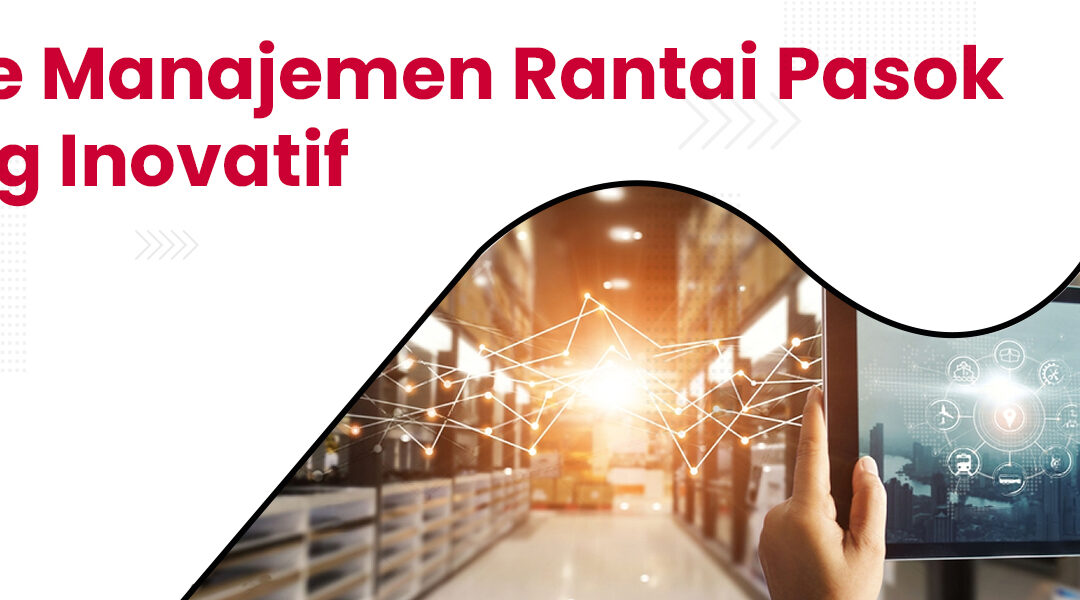When people hear the term supply chain management, they imagine a stockroom manager managing inventory and dealing with vendors. The role of a stockroom manager is very important for a company, but supply chain management is a process that goes beyond managing existing inventory.
In this digital world, supply chain management is an important field for every business around the world. Everyone has their own role in supply chain management, from producers to sellers.
The current challenge is how to provide unique and innovative ideas in the supply chain. Learning about supply chains is not easy, whether you are doing it for learning, as a hobby, or to advance your career. Even so, with the right information and sources, you can do it much easier.
The following are some tips that you can do to master supply chain management and provide innovation in supply chain management for both work and home needs.
What is a supply chain management project
The supply chain management project is a collaborative effort undertaken to establish new methods or methods used to simplify existing supply chain processes so as to provide efficiency, simplify work patterns, and reduce costs.
This of course requires quite in-depth research before starting, so that the practice can later be successful and minimal errors. Supply chain management projects usually have a specific goal to be achieved such as reducing inventory, increasing customer satisfaction, or reducing costs. Such projects usually run for several months and involve lengthy and strategic planning.
There are several types of supply chain management projects that are commonly implemented by an organization. Each has its own advantages and challenges.
A successful implementation of supply chain management usually has the following characteristics:
- Get support from all related parties
- Have an implementation plan
- Have metrics to measure success
- Have a formal review process after implementation
Some trends in supply chain management
supply chain resilience
Supply chain resilience became prominent after the pandemic. Many e-commerce businesses and MSMEs already know the importance of mitigating plans for disruption, and minimizing losses due to unexpected disasters for businesses. They need abundant and diverse supplies, fast solutions, and strong data to achieve supply chain resilience.
Advanced analytics and automation
The use of technologies such as robotics, big data, artificial intelligence and predictive analytics will have far-reaching impacts. There are still many imperfections in the supply chain which ultimately lead to high costs, delays in delivery, and many other problems.
The use of automation provides a high level of transparency and efficiency in supply chain processes.
Internet of Things (IoT)
The Internet of Things is a digital network that is formed between several items using an internet connection that connect each other and can be operated easily. IoT is already widely used in logistics and will continue to do so for a long time to come.
In the supply chain, IoT is widely used for inventory management, fleet tracking and warehousing management
Increased visibility
The failure of a business to find inefficiencies in the supply chain results in customer dissatisfaction. Tracking and visibility in the supply chain is crucial, it can help find gaps in existing shortages.
Customer centrality
Recently, many businesses have turned into customer-centric from previously profit-centric. Finally, we can understand the meaning of the phrase “customer is king”, customers have many choices and also have high consumer acquisition costs.
Building a supply chain that is able to provide last-mile delivery to customers quickly can provide benefits for your business.
Use of artificial intelligence
In general, artificial intelligence is used to build smart warehouses, automate the order fulfillment process, and reduce existing human errors. Combining artificial intelligence with human expertise is the key to technology-based innovation in supply chain management.
What are the topics in supply chain management
Inventory management
Recently, inventory management has become a topic of conversation in supply chain management. This is because consumers want their products to be available quickly. Inventory management is a strategic practice to have the right amount of goods in order to meet current and future consumer needs.
Sustainability
According to recent research results, our environmental conditions are quite alarming. Now is the right time to do something that could save our lives. To reduce emissions and carbon footprint, many companies provide standards for environmental sustainability.
The supply chain has a position as one of the contributors to greenhouse gas emissions. Relevant executives are working to achieve sustainability in the supply chain by using cloud-based technologies and automation.
risk management
There are many disruptions that result in business vulnerabilities and supply chain bottlenecks. The lack of risk management in the supply chain makes businesses have to incur high operational costs. It is very important to have a structured process to identify existing risks in order to achieve supply chain resilience and risk management.
Enterprise resource planning
Many corporations use enterprise resource planning to deal with uncertainties that exist today and in the future. Projected enterprise resource planning market is predicted to reach 78.4 billion US dollars by 2026.
Enterprise resource planning covers many aspects such as inventory management, manufacturing, sourcing and procurement, as well as many other business aspects.
The 7 R’s in the supply chain
Right product
A supply chain manager must know which markets are growing and which are declining. because demand is proportional to supply chain management. Knowing which products are in demand and the sustainability of these products is the foundation of the supply chain.
Right place
The right product has to be delivered to the right place. Identifying the market is also an important factor in the supply chain. Supply chain managers must develop a logistics network that can provide last-mile delivery to the market, and also get a response from the market about the product.
Right price
The price of a product becomes a determining factor for the product. The right product price is a price that will not make consumers hesitate to buy it. Do market research first by knowing what consumer spending capacity is and the prices offered by competitors before determining product prices.
Right customers
This is the most important thing in the supply chain. Identifying customers is very important for any business. Before you launch your product, you must know who your target consumers are, including their preferences, age groups, purchasing abilities, and expectations of your product.
Right conditions
Always think that the product must be sent to the consumer in good condition. If you send a product in a bad condition, you can lose the customer’s trust, and it will be very difficult to regain that trust.
You can use the services of a trusted logistics partner who can deliver products properly to consumer addresses.
Right time
Consumers want the products they buy to arrive quickly, they are even willing to pay more for it. Last-mile delivery can make that happen, and you can also build consumer trust in your brand. It is very necessary to have a logistics process to be able to deliver goods on time.
Right quantity
Having the right product quantity reduces management costs and many other cost burdens. Inventory management in the supply chain can estimate existing demand and can provide efficiency in the supply chain.
8 keys in the supply chain process
Customer relationship management
Identifying consumers who add value to the supply chain, this is certainly something that is important in the supply chain. In this process, the right consumers are identified for a product. Then, their demands and preferences are met by existing products.
Supplier relationship management
Maintaining good relationships with suppliers is as important as maintaining relationships with consumers. A good relationship between a supplier and a business is mutually beneficial to each other. It is very important to be able to find a supplier who can deliver products according to specifications in a timely manner. A good relationship with suppliers can also ensure smooth supply of shipments even in times of crisis.
Customer service management
Even though they look the same, customer service management is different from customer relationship management. Customer service management focuses on interacting with consumers and helping them solve their problems and problems while enhancing their experience with products.
Request management
There is a need for demand management for products in the supply chain, able to answer questions about how many products must be produced. Staying updated with your products can reduce the burden of costs in business. Demand management provides efficiency in the supply chain.
If the demand for a product is high but your production rate is low, you will lose the opportunity to increase your profits. Conversely, if the production rate exceeds the existing demand, you will incur a lot of costs for inventory management, warehousing, production, and so on.
Order fulfillment
Order fulfillment is the path between suppliers and warehouses and consumers. Fulfillment of orders begins with receiving orders from consumers which are then packaged and then shipped. These days, fast order fulfillment is more and more important because consumers want their products to arrive on time.
Manufacturing flow management
This is all the activities related to moving product through the movement in the manufacturing plant and managing flexibility in the supply chain.
Product development and commercialization
This process requires a lot of research and knowledge about what consumer needs have not been met in order to be developed into products and commercialized. Product development and commercialization allows for a steady stream of new products to consumers.
Returns management
Then, returns management takes care of returning goods, gatekeeping, and various other activities related to returning goods. The goal of returns management is to find loopholes that result in returns and prevent existing returns from occurring.
Conclusion
Supply chain management may be quite an interesting topic for entrepreneurs, the existing projects are also very valuable to study. Supply chain management that is structured and well maintained can make a business run smoothly.
Another important part of the supply chain is logistics. If you are just starting an e-commerce business, the complexity of managing logistics might bother you. Luckily, there are logistics aggregators like NimbusPost that help e-commerce with solutions for their logistics needs.


